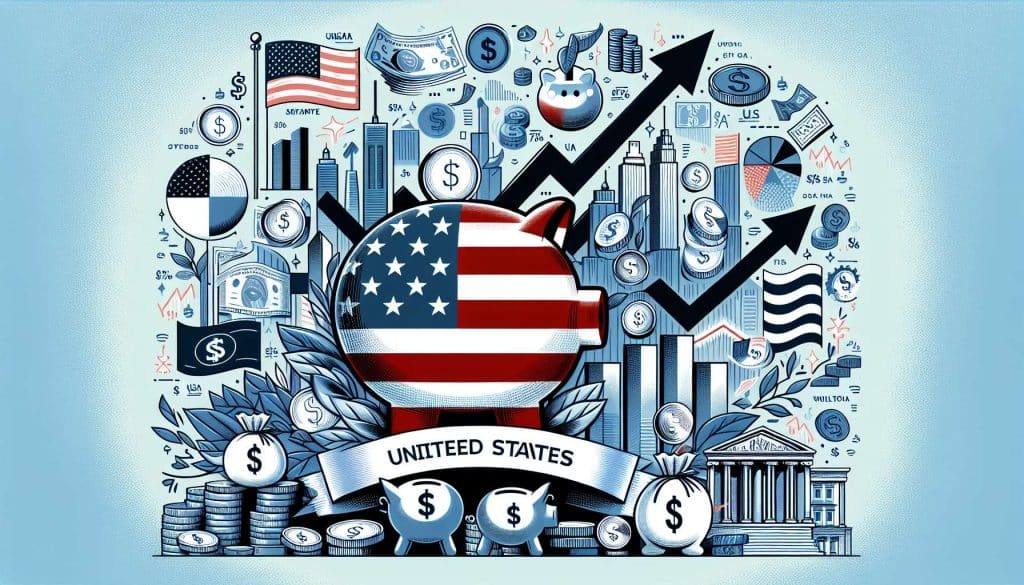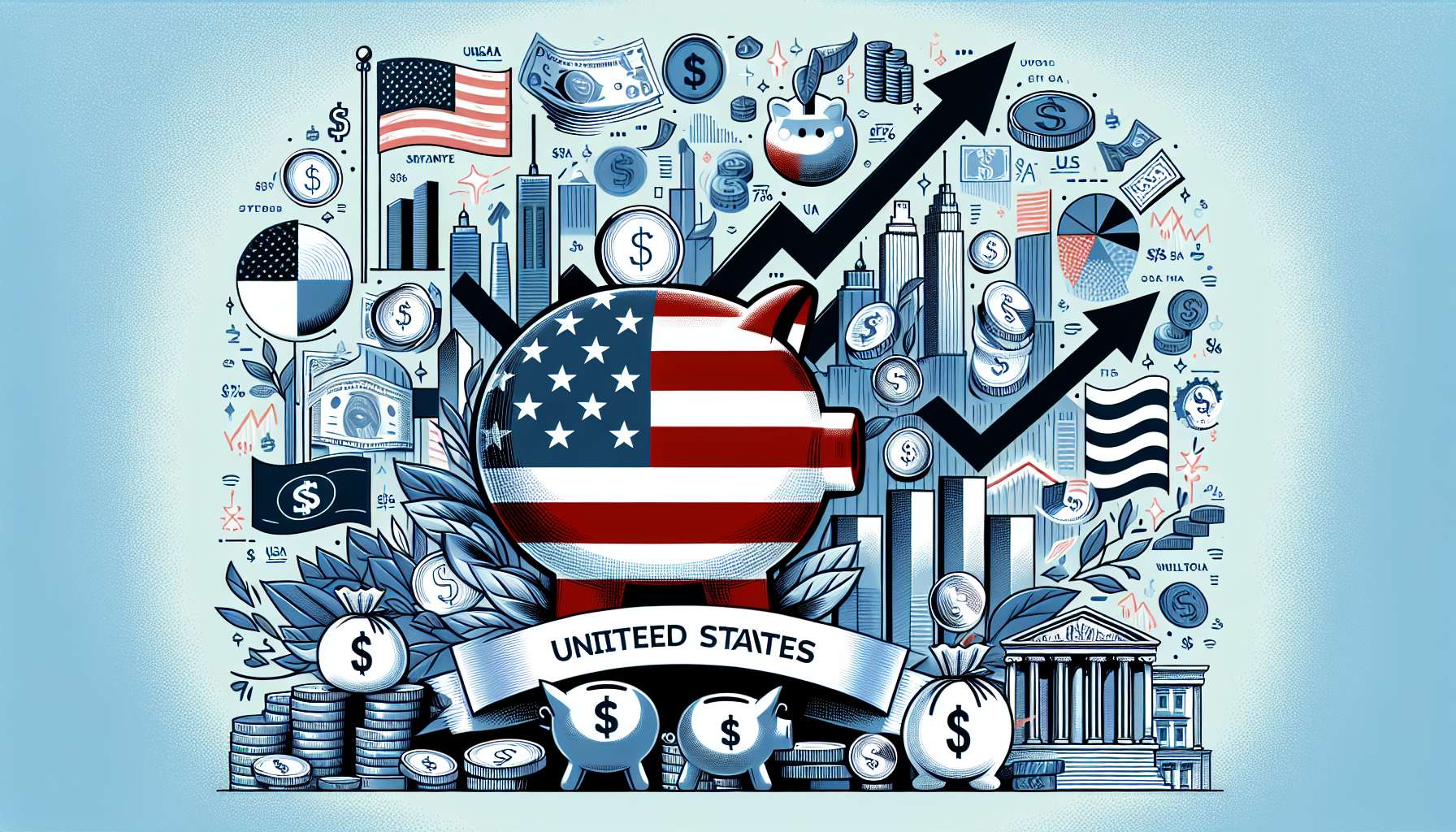Master Your Finances: Boost Wealth with US Economy Tips


Anúncios
The concept of the American Dream oftentimes brings to mind financial independence and success. Yet, for a significant number of Americans, the reality comprises managing multiple bills, accumulating debts, and the endless pursuit of financial stability. The journey to monetary success may appear daunting but can be achieved with practical advice and smart decision-making. Whether you’re working toward buying your first home, managing and reducing debt, or simply aiming to live within your earnings, there exists a wealth of tips and strategies designed to guide you toward financial prosperity.
Understanding and mastering the nuances of personal finance is an essential yet challenging endeavor for many in the United States. By employing effective methods, individuals can bridge the gap between their current financial state and their monetary aspirations. If you’re keen on enhancing your financial acumen, it may involve developing a keen understanding of budgeting, managing expenses, and discovering new income streams while avoiding common financial pitfalls. These foundational principles are critical in navigating the dynamic economic landscape of today.
The path to financial stability is filled with potential barriers and opportunities. With the right mindset and a commitment to steady and strategic management of resources, financial independence becomes an attainable goal rather than a distant dream. Focusing on essential techniques such as comprehensive financial assessments, adopting practical savings strategies, avoiding debt traps, and exploring new income avenues, individuals can take charge of their financial future and pave the way for a financially sound life. This article intends to shed light on these practical personal finance tips to guide Americans towards financial success.
Anúncios
Assessing Your Financial Health
The first step toward improving financial health is gaining clarity over your current financial situation. Begin with a thorough review of your financial position, by examining your bank statements, credit card bills, and any outstanding loans. This critical assessment provides insight into your monthly income versus expenses, effectively highlighting whether you’re meeting financial demands, exceeding them, or managing to save a portion of your earnings. Understanding these elements forms the backbone of any financial strategy.
Constructing an effective budget serves as the cornerstone for managing finances. Consider using financial tools such as Mint or YNAB (You Need A Budget) to categorize your expenses and comprehend spending patterns. This visualization helps in recognizing essential expenditures and identifying areas where you can cut unnecessary costs. By segregating funds for necessities, savings, and leisure, one can establish a balanced allocation tailored to personal needs and preferences, thereby promoting financial health.
Investing time in scrutinizing individual financial outputs versus income plays a pivotal role in forming a robust fiscal foundation. Without a precise understanding of your financial landscape, it’s challenging to make informed decisions aimed at enhancing economic stability. A clear picture of where and how money is spent empowers individuals to make conscious adjustments, thus fostering financial discipline and optimizing resource allocation for more efficient budgeting.
Anúncios
Achieving financial stability also involves setting realistic saving goals. Embracing frameworks like the 50/30/20 rule can effectively streamline saving habits. Allocating 50% of your income for needs, 30% for wants, and reserving 20% for savings cultivates a balance between present comfort and future security. This structure ensures that you’re not only meeting immediate financial obligations but also preparing for unforeseen circumstances and future aspirations.
Methods such as automating savings and capitalizing on discounts and cashback offers can simplify savings and boost financial health over time. Automated transfers from checking to savings accounts, perceived as monthly bills, can exponentially increase your savings. Similarly, leveraging platforms like Rakuten or Honey for applying discounts and utilizing coupons for groceries fosters an easy yet effective way of saving money without compromising on lifestyle quality.
Creating a Comprehensive Budget
- Utilize financial tools like Mint and YNAB for better expenditure visualization.
- Identify essential costs and discretionary spending to optimize budget.
- Allocate funds for necessary expenses, savings, and recreational spending.
- Regularly review and adjust your budget to respond to financial changes.
Benefits of Realizing Financial Health
Ensuring financial wellness brings numerous advantages, from reducing stress levels to increasing opportunities for investment and growth. With a healthy financial status, individuals can mitigate the anxiety associated with living paycheck-to-paycheck and instead focus on achieving broader financial goals. This sense of assurance not only elevates personal life quality, but also offers security and peace of mind regarding future financial commitments and emergencies.
Maintained financial stability presents opportunities for investment and diversification into various revenue streams, such as the gig economy and passive income ventures. These financial extensions allow individuals to harness their skills while steadily increasing income beyond the limitations of traditional employment. This strategic approach to income diversification fuels a stronger economic future by appealing to a wider range of economic possibilities.
The avoidance of debt and wise credit management is prudent for sustaining financial wellness. Employing strategies such as paying above minimum credit card balances and utilizing cash for discretionary expenses can significantly decrease debt. This disciplined approach prevents the accumulation of interest, ultimately preserving financial resources. Understanding one’s credit score affects life-long financial ventures, from loan eligibility to career prospects.
Exploring income supplementation and boosting skill sets are vital components in achieving long-term financial goals. The gig economy offers myriad avenues, such as freelance opportunities and rideshare driving, providing flexibility and additional revenue. Furthermore, the pursuit of self-improvement through continuous learning, whether via formal education or online courses, catalyzes enhanced skills, opening doors to increased earning potential and career advancement.
Living within means remains the cornerstone of financial well-being. Engaging in mindful consumption by differentiating needs from wants assists in making conscious financial decisions, thus preventing unnecessary expenditure. Leveraging free entertainment offerings such as national parks and community events not only enriches life experiences but also conserves resources, contributing to a sustainable financial strategy.
- Opportunities for investment and financial growth.
- Reduced financial stress and increased mental well-being.
- Availability of resources to manage emergencies unconstrainedly.
- Potential for diversified income through gig economy options.





